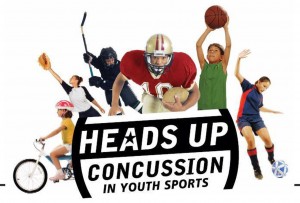Head injuries are very common in children and most are relatively minor. It is common after head injuries to have headache, fogginess, and dizziness. Your child should be able to wake up and behave normally, recognize people and things, and speak clearly. Children need to be observed after head injuries for signs that indicate a more serious problem is developing. Loss of consciousness at the time of the injury may signify a more serious problem and should be evaluated urgently.
Call our office if there are any signs of a more serious head injury including:
- Your child lost consciousness.
- Your child vomits more than 2 times.
- Your child is less than 2 years old.
- Your child is difficult to rouse or is not acting normally/has unusual behavior.
- Your child’s headache worsens.
- Your child has trouble seeing or walking, acts clumsy or uncoordinated.
- Your child has a seizure.
- Your child is unusually sleepy or confused.
- Your child has a bump or swelling on the side of his/her head, either firm or spongy.
- Your child has fallen from more than a 3-foot height.
Centre Pediatrics Concussion FAQs
What is a concussion?
A concussion is an injury to the brain that may be caused by any blow or even bump to the head. Concussions are most common in children who play sports and sustain an injury during play but can happen to anyone.
What are the symptoms of a concussion?
Immediately after an injury to the head a child may appear stunned or dazed, he/she may be confused about events, or move more slowly. Symptoms after the injury may include headache, nausea, vomiting, balance problems, fogginess, dizziness, sensitivity to light or noise, feeling more tired or sluggish than usual, confusion, concentration or memory problems.
What should I do if I suspect my child has a concussion?
Any child with suspected concussion should be removed from play immediately and should not return to play until evaluated by a qualified health care provider. Please call our office to schedule and evaluation and to discuss the best plan for returning to school and returning to physical activity.
Do concussions need to be seen in the emergency room?
Most head injuries may be managed without going to the emergency room. Your child should be seen in the emergency room if they have any of the following red flag signs: one pupil larger than the other, excessive drowsiness or can’t be awakened, headache that is significantly worsening, numbness, repeated vomiting, seizures, loss of consciousness, disorientation or behavioral changes. If you are unsure please call the office.
How does Centre Pediatrics evaluate concussions?
If you suspect your child has a concussion please call our nurse triage line to schedule a visit within 1-3 days of injury. Your child will have a visit with one of our providers to assess symptoms and do a physical exam. In the event that your child is diagnosed with a concussion we will see them in the office typically at weekly intervals as needed to evaluate progress. We will review return to school and return to play recommendations at each visit. The visit may include ImPACT(R) testing, a 20-minute computerized neurocognitive test. This test will be reviewed by our Credentialed ImPACT(R) Consultant Nurse Practitioner.
Baseline ImPACT testing for concussions and post-concussive care for patients ages 12y and older is now available at Centre Pediatrics. Many schools are administering ImPACT baseline testing as well. If your child has this done at school, please keep a copy of the baseline test to bring with you to the office in the event that he/she suffers a head injury.
Download ImPACT Brochure
Download Baseline Worksheet
We recommend all children over 12 years who are engaged in sports or other high impact activities have baseline ImPACT(R) testing. Baseline testing allows us to better track your child’s post-concussion recovery. Please call the office to schedule a baseline ImPACT(R) test for your child. Centre Pediatrics is pleased to offer this service for a fee of $35. Baseline testing is not covered by insurance.
Interested in more information? The CDC has a variety of resources for parents and coaches here:

